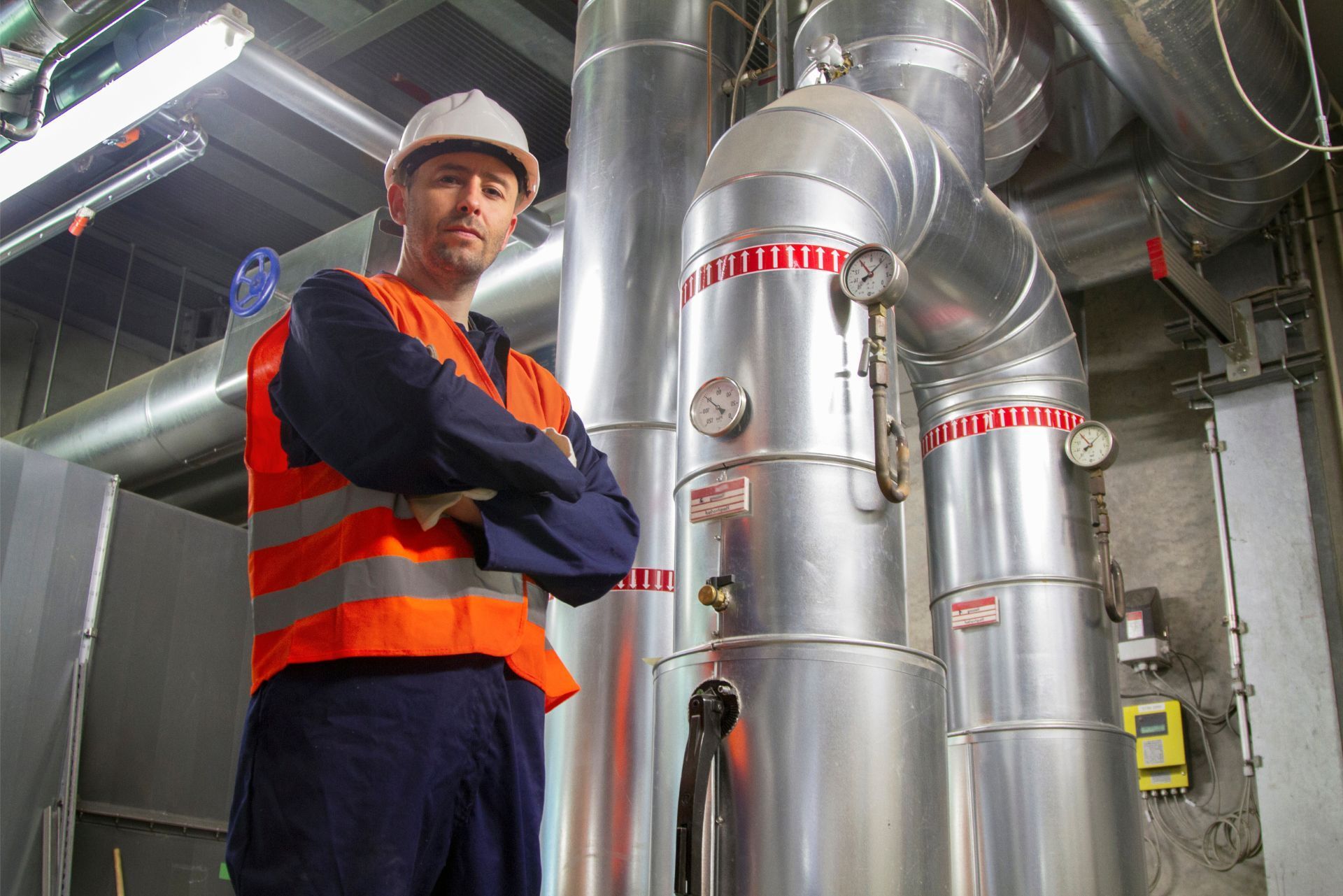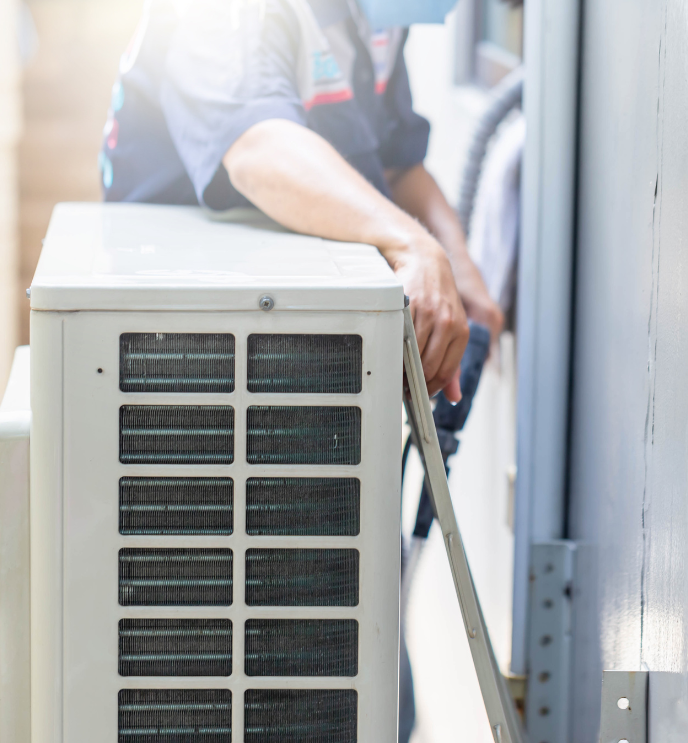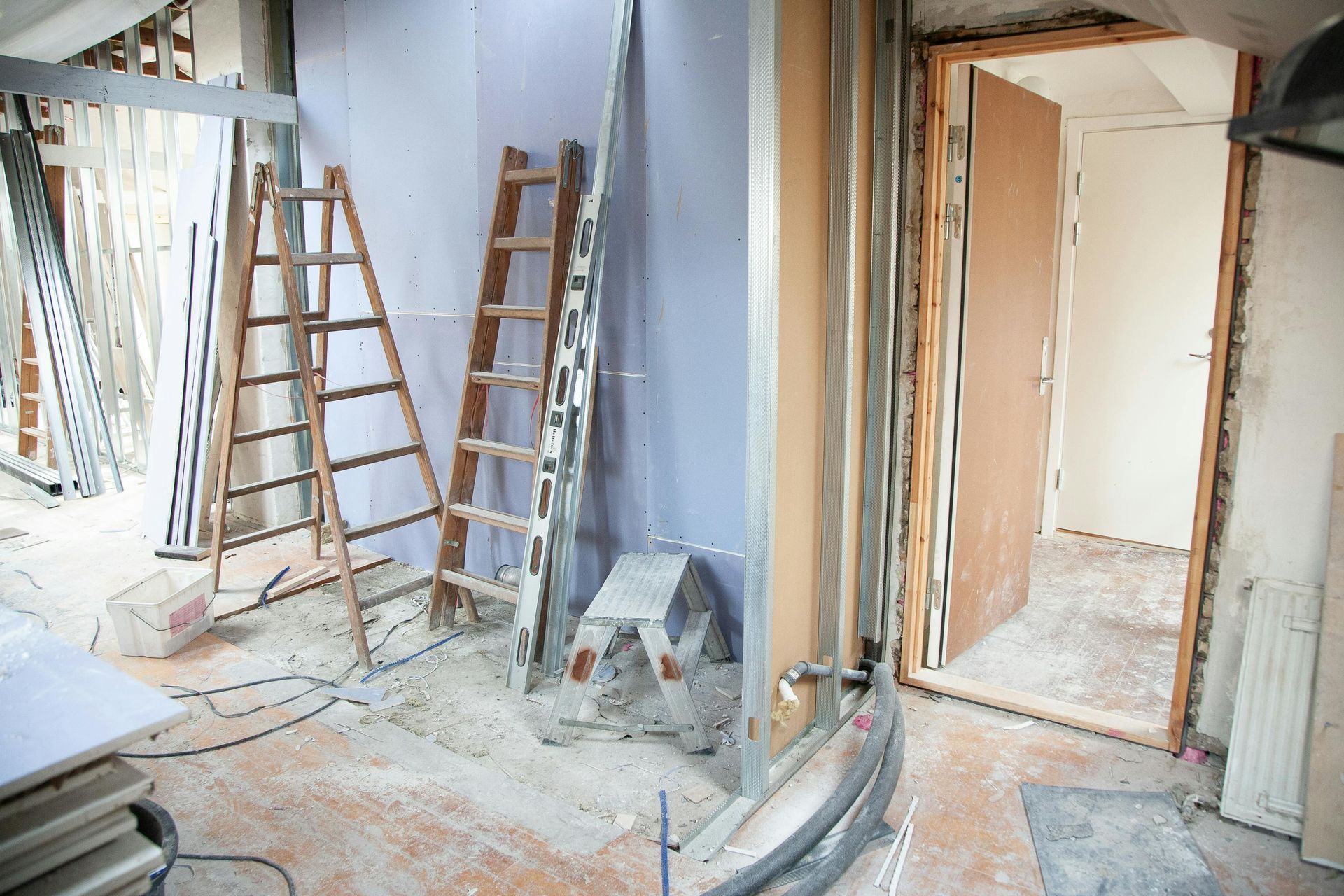Types of Contractors We Serve
Jonathan Behr
Owner of Contractor Insurance Pros by Behr Insurance Services
Index
Contact Us
Phone
Location
Simi Valley, CA 93065
The Woodlands, TX 77382
Katy, TX 77494
In the realm of heating, ventilation, and air conditioning (HVAC), geothermal systems are gaining popularity due to their energy efficiency and environmental benefits. As a geothermal HVAC contractor, ensuring your business is protected with the right insurance is crucial. This article explores the various insurance options available, the unique risks associated with geothermal HVAC work, and the importance of having adequate coverage.
Understanding the Unique Risks of Geothermal HVAC Work
Geothermal HVAC systems utilize the earth's natural heat to provide heating and cooling solutions. While this technology offers numerous advantages, it also presents specific risks that contractors must navigate. Understanding these risks is the first step in determining the appropriate insurance coverage.
Physical Risks
Contractors working on geothermal systems often face physical hazards on the job site. These can include working with heavy machinery, digging trenches for ground loops, and navigating uneven terrain. Injuries can occur, leading to potential workers' compensation claims. Proper insurance can help mitigate the financial impact of these incidents. Additionally, the physical demands of geothermal work can lead to long-term health issues, such as musculoskeletal disorders, particularly if proper ergonomic practices are not followed. Training workers on safe lifting techniques and providing adequate personal protective equipment (PPE) can further reduce these risks, ensuring a safer work environment.
Property Damage Risks
Geothermal installations involve significant excavation and construction work, which can lead to property damage. Whether it's damaging a neighbor's property or causing issues with existing structures, the financial implications can be substantial. Liability insurance is essential to cover these potential damages and protect the contractor's financial interests. Moreover, the complexity of geothermal systems means that mistakes during installation can lead to costly repairs or system inefficiencies. Contractors must ensure that their teams are well-trained and that they follow best practices to minimize the risk of errors that could result in property damage, thereby safeguarding their reputation and financial stability.
Regulatory Risks
Geothermal HVAC contractors must adhere to various local, state, and federal regulations. Non-compliance can result in fines, legal action, or the loss of licenses. Insurance that covers legal fees and fines can be invaluable in these situations, ensuring that contractors can continue their operations without significant financial setbacks. Furthermore, staying updated on changing regulations can be a daunting task, as laws regarding environmental protection and energy efficiency are constantly evolving. Engaging with industry associations and participating in training sessions can help contractors stay informed, reducing the likelihood of regulatory issues and enhancing their credibility in the market.

Types of Insurance for Geothermal HVAC Contractors
Various types of insurance are essential for geothermal HVAC contractors. Each type serves a specific purpose and helps mitigate the unique risks associated with this field. Understanding these options can help contractors make informed decisions about their coverage.
General Liability Insurance
General liability insurance is a fundamental coverage for any contractor. It protects against claims of bodily injury, property damage, and personal injury that may occur during the course of business operations. For geothermal HVAC contractors, this insurance is crucial, as it covers incidents that may arise from installation or maintenance work. For instance, if a client slips and falls on a wet surface during an installation, general liability insurance can cover medical expenses and legal fees, providing peace of mind to contractors as they navigate their daily operations.
Workers' Compensation Insurance
Given the physical nature of geothermal HVAC work, workers' compensation insurance is vital. This coverage provides benefits to employees who are injured on the job, including medical expenses and lost wages. In many states, this insurance is a legal requirement, making it essential for contractors to secure adequate coverage. Moreover, this insurance not only protects the workers but also fosters a safer workplace environment, as contractors are incentivized to implement safety measures and training programs to minimize the risk of accidents and injuries on-site.
Professional Liability Insurance
Professional liability insurance, also known as errors and omissions insurance, protects contractors against claims of negligence or inadequate work. In the geothermal HVAC industry, where complex systems are involved, this coverage is particularly important. It safeguards contractors from potential lawsuits stemming from design flaws or installation errors. Additionally, as technology evolves and more sophisticated geothermal systems are introduced, the risk of miscalculations or oversight increases. This insurance not only helps in covering legal costs but also enhances the contractor's credibility, assuring clients that they are working with a professional who takes accountability seriously.
Equipment Insurance
Another critical type of insurance for geothermal HVAC contractors is equipment insurance. This coverage protects the tools and machinery essential for installation and maintenance tasks. Given the high cost of specialized equipment, such as drilling rigs and heat pumps, having this insurance can prevent significant financial losses due to theft, damage, or breakdowns. In the geothermal field, where contractors often work in remote locations, equipment insurance ensures that they can quickly replace or repair their tools without incurring debilitating costs that could jeopardize their business operations.
Commercial Auto Insurance
For contractors who rely on vehicles to transport equipment and personnel to job sites, commercial auto insurance is indispensable. This coverage protects against accidents that may occur while driving for business purposes, including liability for injuries or property damage resulting from an accident. Given the nature of geothermal HVAC work, which often involves traveling to various locations, having commercial auto insurance not only fulfills legal requirements but also safeguards the contractor's assets. Moreover, it can cover damages to the vehicle itself, ensuring that contractors can maintain their mobility and efficiency in servicing clients promptly.
The Importance of Tailoring Insurance Coverage
Every geothermal HVAC contractor's business is unique, and so are their insurance needs. Tailoring coverage to fit specific business operations is essential for effective risk management. Here are some key considerations for customizing insurance policies.
Assessing Business Operations
Contractors should conduct a thorough assessment of their business operations to identify potential risks. This includes evaluating the types of projects undertaken, the size of the workforce, and the equipment used. By understanding these factors, contractors can work with insurance providers to create a policy that adequately covers their unique risks. Additionally, it is important to consider the geographical areas served, as different regions may present distinct environmental hazards or regulatory requirements that could impact coverage needs. For instance, contractors operating in areas prone to natural disasters, such as floods or earthquakes, may require specific endorsements to protect against these risks.
Consulting with Insurance Professionals
Working with an insurance professional who specializes in contractor coverage can provide invaluable insights. These experts can help identify gaps in coverage and recommend additional policies that may be necessary. They can also assist in navigating complex insurance language and ensuring that contractors fully understand their policies. Furthermore, they may offer guidance on risk mitigation strategies that can lower premiums, such as implementing safety training programs for employees or investing in high-quality equipment. By leveraging their expertise, contractors can make informed decisions that enhance both their coverage and overall business resilience.
Regularly Reviewing Insurance Policies
As businesses grow and evolve, their insurance needs may change. Regularly reviewing insurance policies ensures that coverage remains adequate and relevant. Contractors should schedule annual reviews with their insurance provider to discuss any changes in operations, workforce, or project scope that may necessitate adjustments in coverage. This proactive approach not only helps in maintaining compliance with industry standards but also allows contractors to take advantage of new insurance products or discounts that may have become available. Additionally, staying informed about emerging risks in the geothermal HVAC industry, such as advancements in technology or shifts in regulatory frameworks, can further guide contractors in making necessary policy adjustments to safeguard their business effectively.
Cost Considerations for Geothermal HVAC Contractor Insurance
The cost of insurance can vary significantly based on several factors, including the contractor's location, the size of the business, and the types of coverage selected. Understanding these cost considerations can help contractors budget effectively for their insurance needs.
Location and Regulatory Environment
The geographical location of a geothermal HVAC contractor plays a significant role in determining insurance costs. Areas with higher risks of natural disasters, such as floods or earthquakes, may result in higher premiums. Additionally, local regulations and requirements can impact insurance costs, making it essential for contractors to be aware of their specific market conditions. For instance, states with stringent environmental regulations may require additional liability coverage, which can further increase costs. Contractors operating in urban areas might also face higher insurance rates due to increased competition and the potential for higher claims from densely populated regions.
Business Size and Scope
The size of the business, including the number of employees and the scope of projects undertaken, also influences insurance costs. Larger businesses with more employees may face higher premiums due to increased risk exposure. Contractors should carefully evaluate their business model to ensure they are adequately covered without overpaying for unnecessary coverage. Furthermore, the nature of the projects—whether they involve residential installations or large commercial systems—can also dictate the type of coverage needed. Specialized projects may require additional endorsements or riders, which can add to the overall insurance expenditure.
Claims History
A contractor's claims history can significantly impact insurance premiums. A history of frequent claims may result in higher rates, while a clean record can lead to discounts. Contractors should focus on maintaining a safe work environment and minimizing risks to keep their claims history favorable. Engaging in regular safety training and implementing strict safety protocols can not only help in reducing accidents but also demonstrate to insurers a commitment to risk management. Additionally, some insurance providers offer incentives for contractors who invest in safety equipment or technology, which can further mitigate risks and lower premiums over time.

Finding the Right Insurance Provider
Choosing the right insurance provider is a critical step in securing adequate coverage for geothermal HVAC contractors. The right provider can offer tailored solutions and support throughout the insurance process. With the unique challenges faced by geothermal contractors, such as fluctuating market conditions and the need for specialized equipment, having a knowledgeable insurance partner can be invaluable.
Researching Insurance Companies
Contractors should begin by researching insurance companies that specialize in contractor coverage. Look for providers with a strong reputation and experience in the geothermal HVAC sector. Reading reviews and seeking recommendations from industry peers can provide valuable insights into the reliability and service quality of potential providers. Additionally, it can be beneficial to check if the insurance company has experience with claims specific to geothermal systems, as this can indicate their understanding of the unique risks involved in the industry.
Comparing Quotes
Once a list of potential insurance providers is compiled, contractors should request quotes from multiple companies. Comparing quotes allows contractors to evaluate coverage options and premiums side by side, ensuring they make an informed decision. It's essential to consider not only the cost but also the breadth of coverage offered. Factors such as liability limits, coverage for equipment breakdown, and protection against environmental hazards should be carefully examined. Furthermore, understanding the exclusions in each policy can help contractors avoid unexpected gaps in coverage that could leave them vulnerable.
Assessing Customer Service and Support
Customer service is a crucial factor when selecting an insurance provider. Contractors should assess the level of support offered, including responsiveness to inquiries and claims processing efficiency. A provider with excellent customer service can make a significant difference in navigating the complexities of insurance claims and policy management. It's also wise to inquire about the availability of dedicated account managers or specialists who understand the geothermal HVAC industry. Such support can provide contractors with peace of mind, knowing they have a knowledgeable advocate on their side when issues arise. Additionally, consider whether the provider offers educational resources or tools that can help contractors stay informed about best practices and changes in the insurance landscape.
Conclusion
Geothermal HVAC contractor insurance is an essential aspect of running a successful business in this growing industry. Understanding the unique risks associated with geothermal systems, tailoring coverage to meet specific needs, and selecting the right insurance provider are all critical steps in protecting a contractor's financial interests. By investing in adequate insurance, geothermal HVAC contractors can focus on delivering high-quality services while safeguarding their business against unforeseen challenges.
In an industry that is constantly evolving, staying informed about insurance options and trends is vital. As geothermal technology continues to advance, contractors must ensure their insurance coverage keeps pace with these changes. By prioritizing insurance as a key component of business strategy, geothermal HVAC contractors can thrive in a competitive marketplace.
Areas we serve









